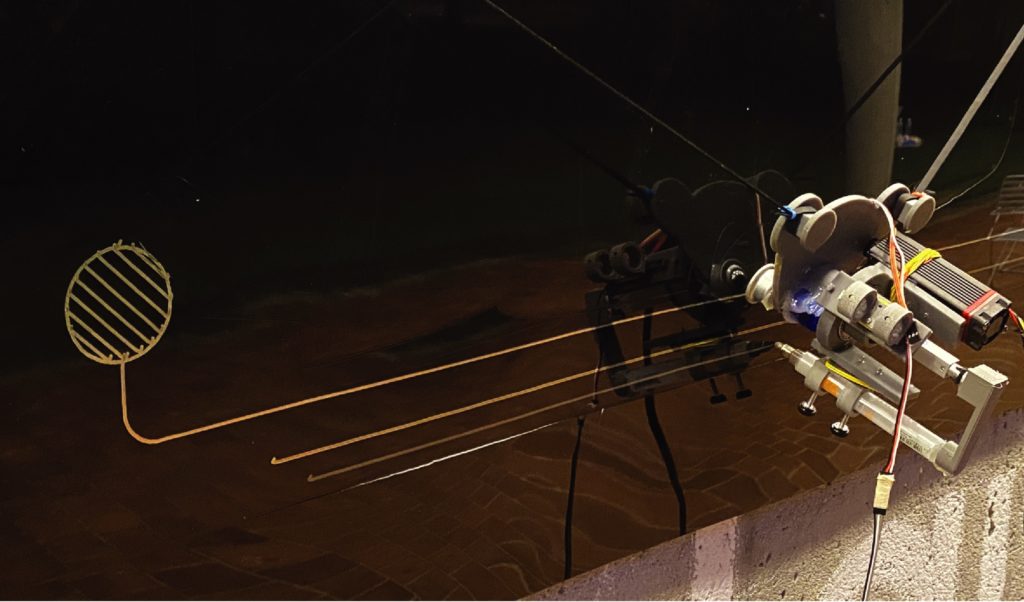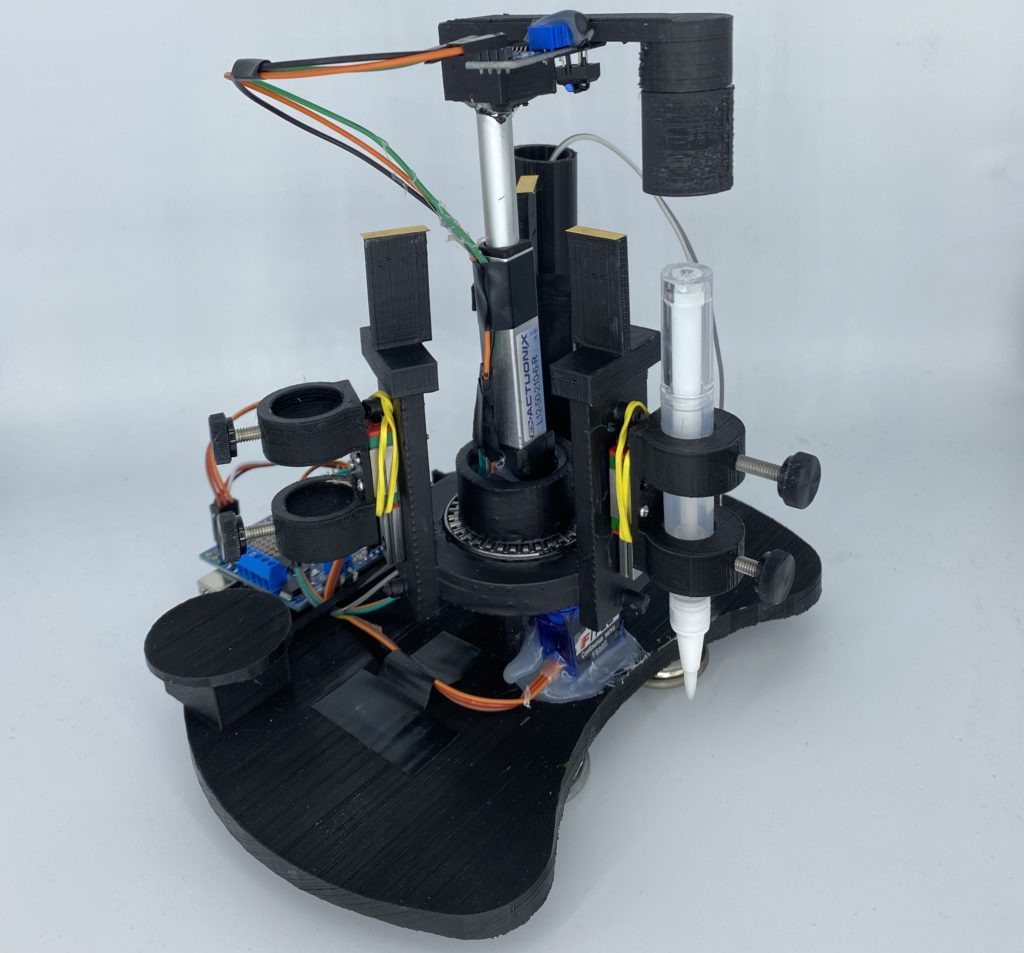— October 6th, 2021

When we think of circuits, we tend to picture wires or PCB traces. But a circuit is anything that conducts electricity between components. Today we have more options than ever before thanks to material like conductive ink and thread. Utilizing conductive ink on a large scale, Duco is an open source wall-climbing robot that brings interactivity to vertical everyday surfaces.
Duco’s inspiration came from Sandy Noble’s fantastic Polargraph, which was a hanging pen plotter robot that could draw large images. But those images didn’t serve any purpose beyond visual appeal. Duco takes the Polargraph idea into a whole new direction. By swapping between special pens, Duco can draw conductive, dielectric, cleaning, or decorative lines on walls. Those combine to create multilayer functional circuits.

An Arduino Uno board controls Duco through a motor shield. It has two stepper motors, a servo motor, a linear actuator, and a UV light. It is capable of switching between two different pens — normally the conductive and dielectric ink. The UV light cures the ink after Duco applies it to a wall. Most of Duco’s frame parts were 3D-printed.
In one demonstration, Duco drew a working piano circuit onto a wall. Once the components, including control boards and speakers, were added to the circuit, people could play the piano by touching the conductive pads. In another demonstration, Duco turned a wall into a large capacitive touch sensor grid similar to a massive track pad. Duco’s creators even experimented with a laser module add-on, which let the robot cut the circuit “substrate” material.
Website: LINK


